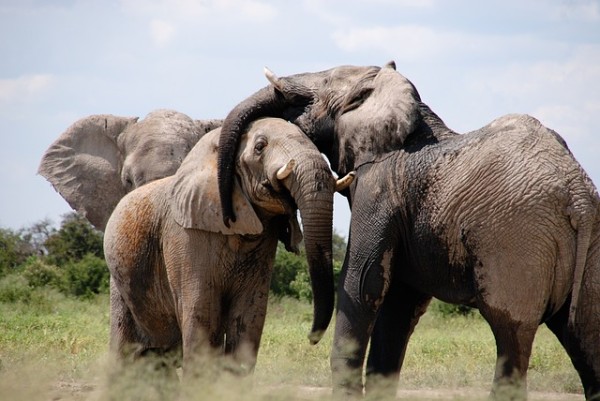Scientists reveal how elephants rarely have cancer despite their colossal size as researchers unravel this mystery involving the big creatures' genetic makeup.
The secret lies in elephants possessing 38 additional, modified copies of a certain gene that can encode p53, which is a crucial compound that is essential to preventing a tumor from forming. In humans however, humans only possess two of these genes.
This new study details how elephants have evolved when it comes to their bodies producing a lot of extra copies of the gene that stops tumors from forming, getting bigger and spreading out.
Scientists consider elephants as a mystery when it comes to their immune system capabilities as they obviously possess a vast amount of cells compared to humans which would suggest that the animals could have a higher risk for cancer during their lifespans, lasting 50 to 70 years.
Data analysis of elephant deaths also show that less than five percent of elephants die from cancer as opposed to 11 to 25 percent of humans.
According to co-author of the study, Joshua Schiffman of the Huntsman Cancer Institute, University of Utah School of Medicine, logical reasoning should dictate that elephants should develop a massive amount of cancer cells and should probably be extinct by now due to an incredibly high risk of cancer. He also adds that the team believes that the elephants' way of producing more p53 is nature's helping hand to the species to stay alive.
Researchers also reveal how elephants naturally possess more aggressive internal defense mechanisms that kill damaged cells that are at risk of developing into cancerous ones. According to researchers from the Arizona State University and the Ringling Bros. Center for Elephant Conservation, isolated elephant cells work twice as hard as opposed to healthy human cells.
The team hopes to find new cancer fighting therapies and even a cure for cancer for humans in the future with these new findings. This new study is published in the Journal of the American Medical Association (JAMA).


